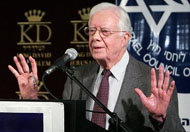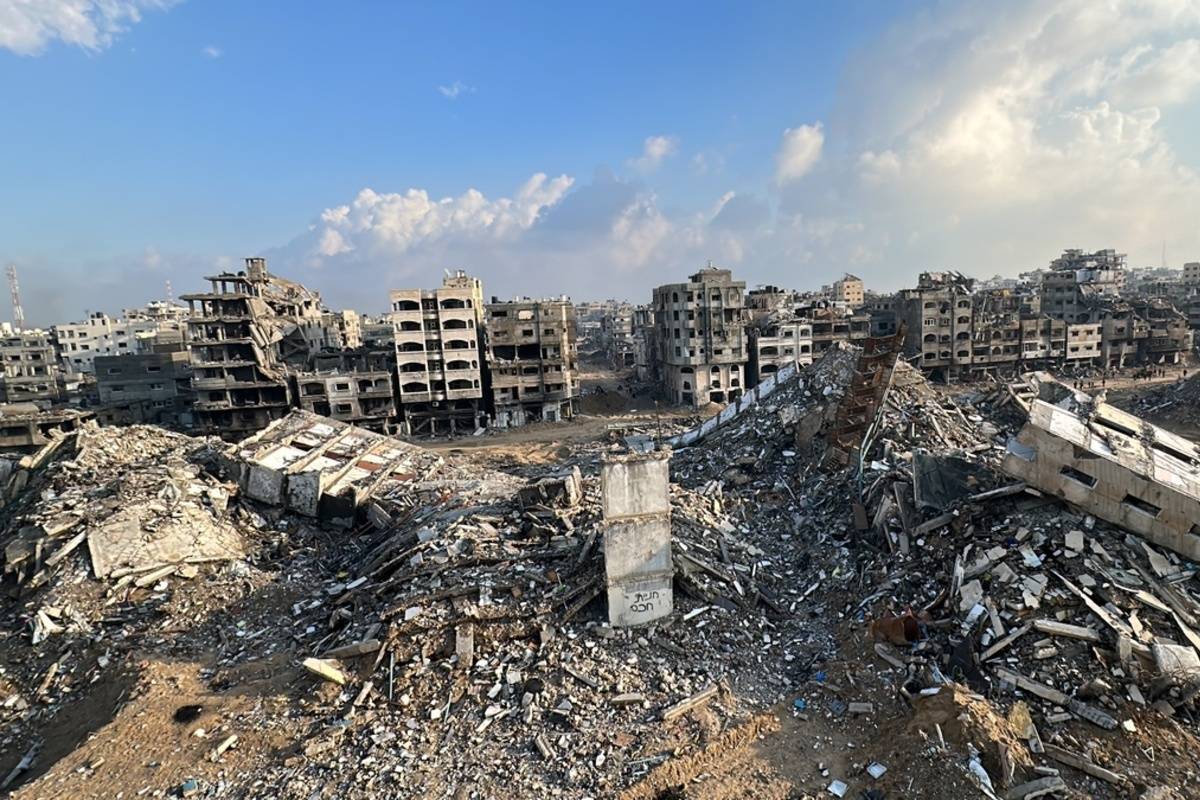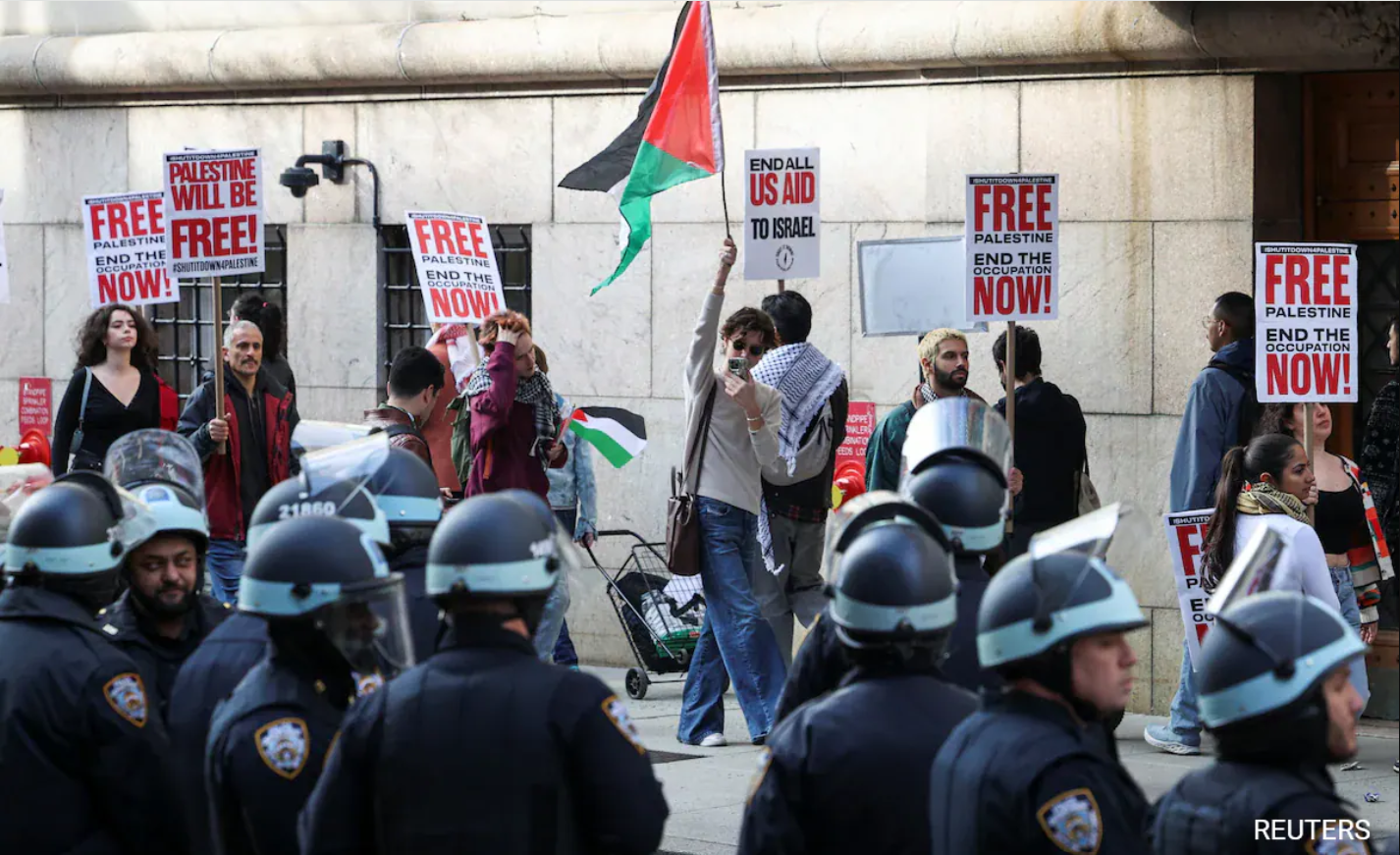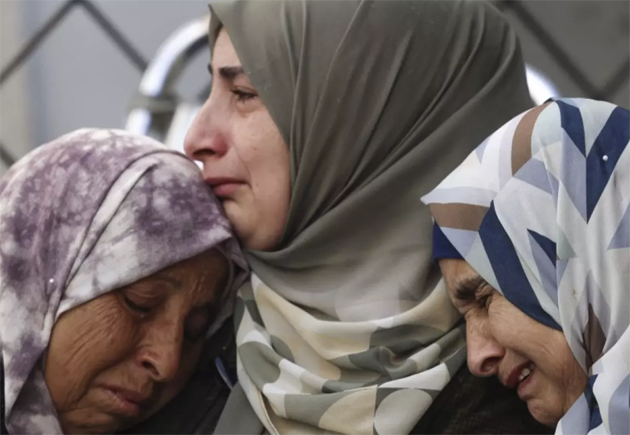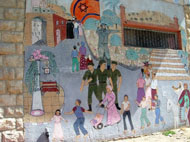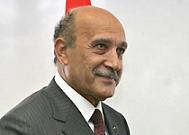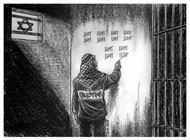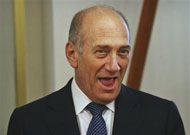The visit of the 39th President of the United States to the region has not surprisingly attracted a lot of heated and opinionated discussion as to what his somewhat unconventional itinerary, especially when compared to visits from other international figures of similar repute, plans to achieve during his trip which will take the 2002 Nobel Peace laureate to Israel, the West Bank, Egypt, Syria, Jordan and Saudi Arabia.
Former President Jimmy Carter, who by bringing Anwar Sadat and Menachem Begin together in 1978 at Camp David initiated the first peace agreement between Israel and an Arab country, arrived in the region just 18 months after his book, Palestine: Peace not Apartheid was published. The book, which compares Israeli occupation with South African apartheid, condemns the Israeli occupation and their settlement expansion policy in the West Bank while highlighting the lack of movement and access as well as the excessive levels of land confiscation experienced by Palestinians as a result of the occupation.
Naturally, the news that Jimmy Carter was to visit the region was not exactly a source of excitement and pride for Israel. Instead, they were plunged into further perplexity when Carter declared that he intended to not only meet Hamas officials in Gaza and the West Bank, but planned on requesting an audience with Hamas’ politburo chief Khaled Me’shaal in Damascus. This agenda drew much criticism and opposition, none more so than from the country Carter previously presided over. In an attempt to extend the deserved respect to the highly influential Democratic superdelgate from Georgia, the Whitehouse commented that Carter’s actions were that of a “private citizen” and not representative of the US. Presidential hopeful Barack Obama, realizing that superdelgates may be the decisive factor in his competition against Hillary Clinton, also strayed away from any accusatory language stating that “it is not my place to discuss who he shouldn’t meet with” while mentioning that he would not meet Hamas and does not think such dialogue would be “fruitful”. Meanwhile, Clinton expressed her respect for the 83 year old but emphasized that she disagreed with his methods.
However, some commentators could not contain their condemnation and adopted a more vocal response to Carter’s trip, regarding it as a blatant disregard of US foreign policy which designates Hamas as a “terrorist” organization. Republican presidential candidate John McCain deemed that Hamas is “dedicated to the destruction of Israel” and dialogue with a group that has killed innocent Americans would be a “grave and dangerous mistake”. In addition, Secretary of State Condoleezza Rice claimed that “I find it hard to understand what is to be gained by having discussions with Hamas about peace when Hamas is in fact the impediment to peace” and State Department spokesman Stephen Hadley asserted that not talking to terrorists is a “very important principle to maintain”.
Israel chose to employ a less vociferous response to former President Carter, preferring to implement the equally effective silent treatment, hoping that their lack of statements would in fact speak volumes. Israeli President Shimon Peres agreed to meet Carter but mentioned that dialogue with Hamas was a “very big mistake”. Jimmy Carter, who had already been prohibited from going to Gaza or visiting imprisoned Fateh leader Marwan Barghouti, was also apparently refused security protection from the Shin Bet. While the Carter delegation claimed to have sent an official request, Shin Bet maintained that they had not received such an application to acquire their services. Prime Minister Olmert’s office initially announced that there was no time for the premier to meet with Carter, however, after Olmert had been seen greeting a TV star from the hit show “Prison Break”, it was revealed that Olmert simply did not want to imply that by getting together with the former US President, he was endorsing dialogue with Hamas.
Why all this commotion and pandemonium over a highly established and prominent Middle Eastern enthusiast, currently in his twilight years, who simply wants to try his hand at bridging the Hamas/Israel divide and pursue peace? What threat does an old man who has promoted humanitarian justice, peace, democracy and co-operation throughout the world pose to Israel and the US? Is it wrong and undemocratic to seek the alternative route of dialogue rather than continue along a strategy which has brought nothing but inhumane sanctions, escalations in violence and a communications blackout? How will anything be solved if one refuses to talk with the other parties involved? How can Israel/US justify the treatment of such a revered individual, one who has aided Israel greatly within the international diplomatic sphere, and one who merely wants to assume the position of a “communicator” and to use words rather than violence to address the issue?
On arrival, Jimmy Carter explained that “since Syria and Hamas will have to be involved in a final peace agreement they have to be involved in discussions that lead to final peace”. By meeting with Hamas officials Carter revealed that he could “ascertain what flexibility they have, to try to induce them to stop all attacks against innocent civilians in Israel and to cooperate with Fateh as a group that unites the Palestinians, maybe to get them to agree to a cease-fire”. Furthermore, Carter questioned the value of stringently demonstrating an “unwillingness to talk to someone who disagrees with you unless he agrees with all your prerequisites”.
Now this modus operandi is not beyond the realms of reason, nor should it receive a reaction that relegates the method to an unsubstantiated or experimental concept which lacks precursors. If anything, by amalgamating opinions from across the Hamas spectrum, exploring possible avenues for compromise, by urging the Hamas leadership to meet with Israeli Deputy Prime Minister Eli Yishai over what is required for the release of Gilad Shalit and asking what needs to be done to ensure rockets aren’t launched from Gaza into Israel, the former President is essentially protecting and upholding Israeli interests as much as he is those of Palestinians. Why construe the visit as one of Carter assuming the position of a traitor/double agent acting in complete contradiction of Israeli interests?
One explanation is the fear that Carter may uncover some sort of secret national strategy, which has remained unnoticed. Just as a protagonist in a novel that eventually unravels a conspiracy, intrepidly follows a range of clues while the powers that be attempt to halt his discovery, Carter armed with the same resolve may be aspiring to achieve a similar feat. Similar to the protagonist in these novels, Carter possesses something unique or has been exposed to certain information that allows him to continue the pursuit of his quest. In this case he is one of the lasting influential players versed on the Israel that forged peace with an Arab country and vowed to surrender its colonialist ambitions. Using the blueprint of Israeli policy in 1978, Carter may, as Hasan Abu Nimah wrote, break Hamas’ isolation and transform the Hamas myth from one that documents them as uncooperative warmongers, intent on the destruction of Israel to one of a resistance turned national liberation group which is pushing for a long term hudna [truce]. This realization may reveal that Israel’s policy is in fact one of intransigence, focused on the alienation and gradual crippling of Hamas which adopts a propaganda program that creates facts on the ground which are not conducive to peace and therefore maintain the status quo.
While meeting with Hamas officials, Carter did hear some positive remarks concerning peace. In Ramallah, the former Deputy Prime Minister of Hamas Nasser Shaer confirmed, “the possibility for peace is high”. In Cairo, Hamas official Taha al-Nunu stated that “we are working towards a truce on the condition that the crossing points be opened and that all enemy conditions stop immediately” and in Damascus, Hamas spokesperson Mohammed Nazzal announced that the discussion with Carter revolved around a possible prisoner exchange, ways of stopping the siege and that Hamas would respond to Carter positively but “not at any price”, stressing that Hamas “supports a truce but Israel should support it too”.
One should consider the comments made by UN Under-Secretary General for Humanitarian Affair’s John Holmes when asked about Carter’s self-proclaimed personal peace mission. His response was “why not?” Why not indeed - everything should be tried to prevent further bloodshed and humanitarian disaster.
However, Carter’s trip may have highlighted a real fundamental issue that is ubiquitous whenever dealing with Hamas. Who is their authoritative voice? In Damascus Carter met politburo chief Khaled Me’shaal and his deputy Moussa Abu Marzouk, long believed to be the ruling representatives of Hamas despite them living in exile. In Ramallah, where the PA presides, Carter met the moderate Nasser Shaer who is currently rather detached from the situation in Gaza and the group's present policies. Then in Cairo, Carter met with Hamas’ co-founder and hardliner Mahmoud Zahar as well as former Interior Minister in charge of the armed forces Said Seyam. These individuals are thought to be the masterminds behind the takeover of Gaza in June 2007 and are also thought to govern policy in Gaza.
Amidst Carter’s visit, Hamas’ military wing (al-Qassam Brigades) claimed responsibility for disguising two vehicles as Israeli military jeeps and exploding them next to the Kerem Shalom crossing wounding 13 Israeli soldiers. In retaliation, Israel has so far killed eight Hamas members in Gaza.
In a recent article printed by the Washington Post, Mahmoud Zahar quoted his prerequisites for peace. It must be negotiated by President Abbas, approved by a Palestinian referendum and there must be a full withdraw to the pre 1967 border – “given what we have lost, it is the only basis by which we can start to be whole again”.
A lot has changed since 1978. With this mission to the region, former President Carter has been thrust into the intricacies involved in addressing the immensely arduous task of forging peace between Israelis and Palestinians, subsequently stumbling upon one of the major obstacles in the process. How does one broker a peace when the balance of power is so overwhelmingly on the side of the occupier while the occupied peoples are divided and expecting what is within their right but hoping that the occupied will acquiesce to these demands when they have no interest or inclination to do so?




